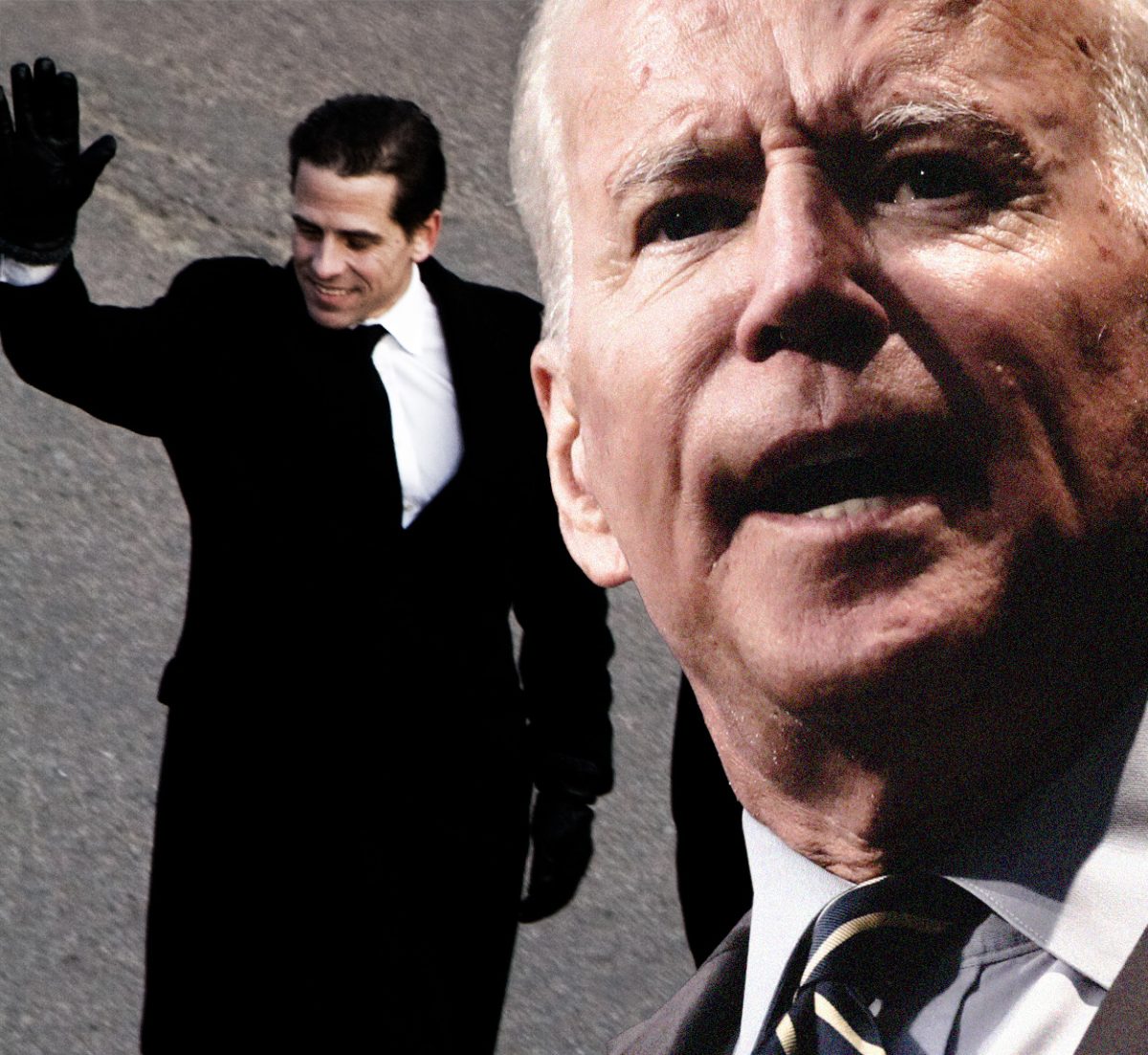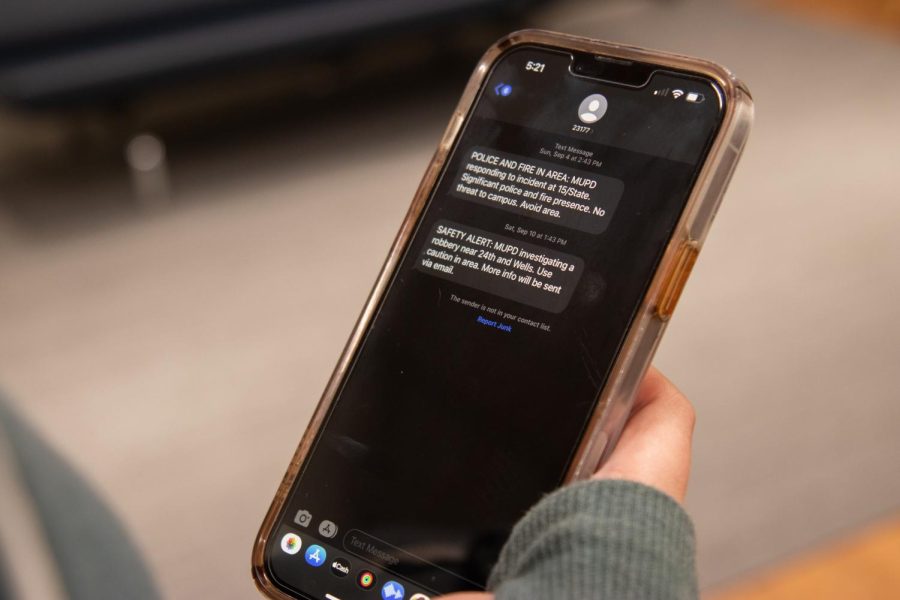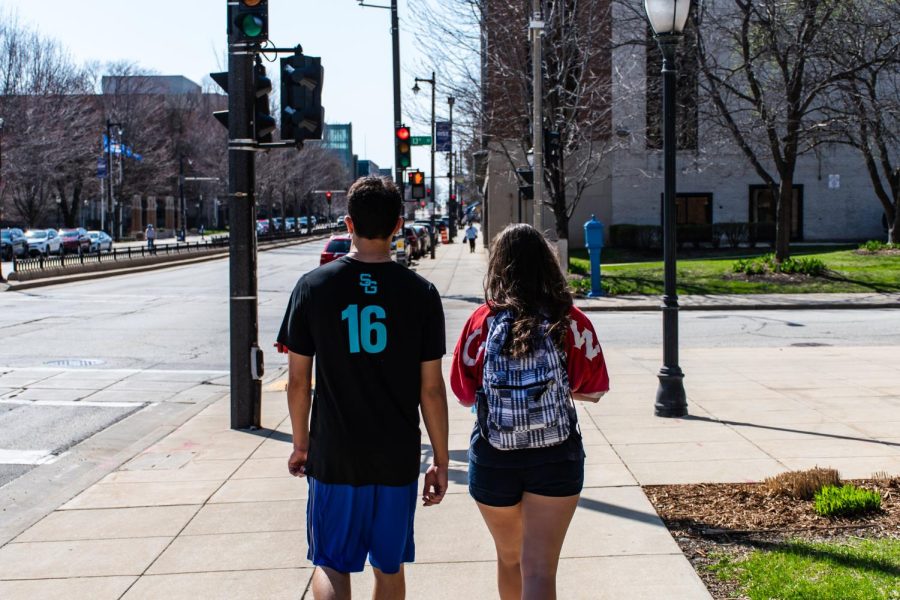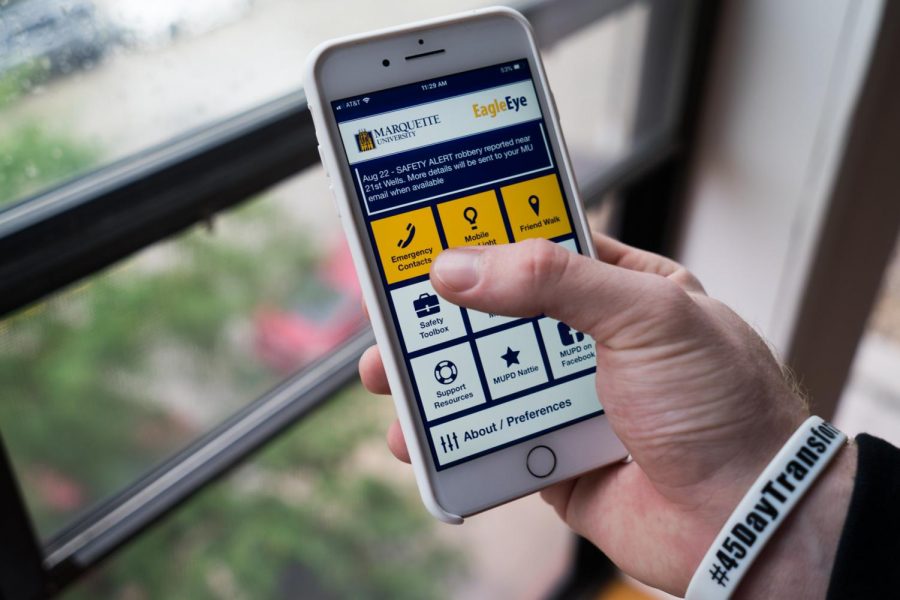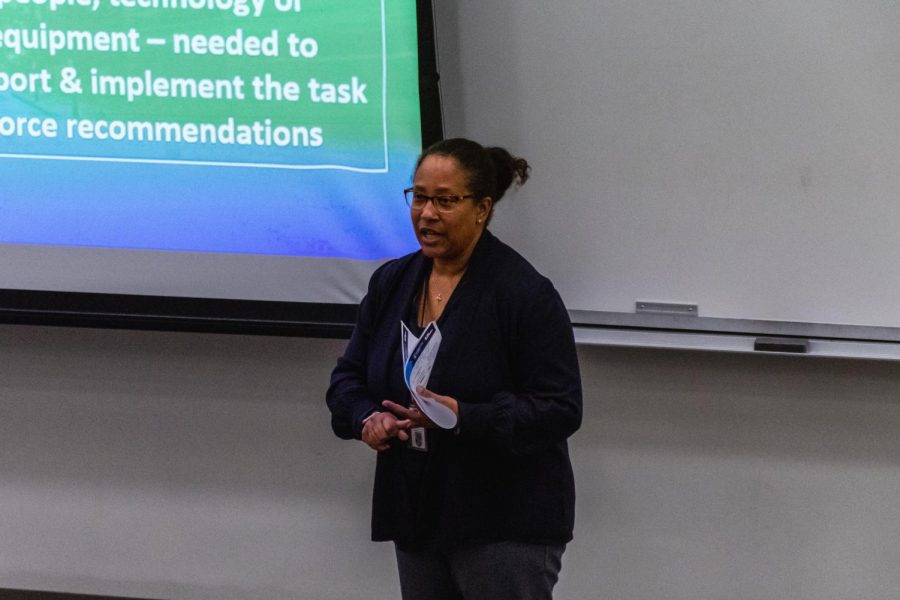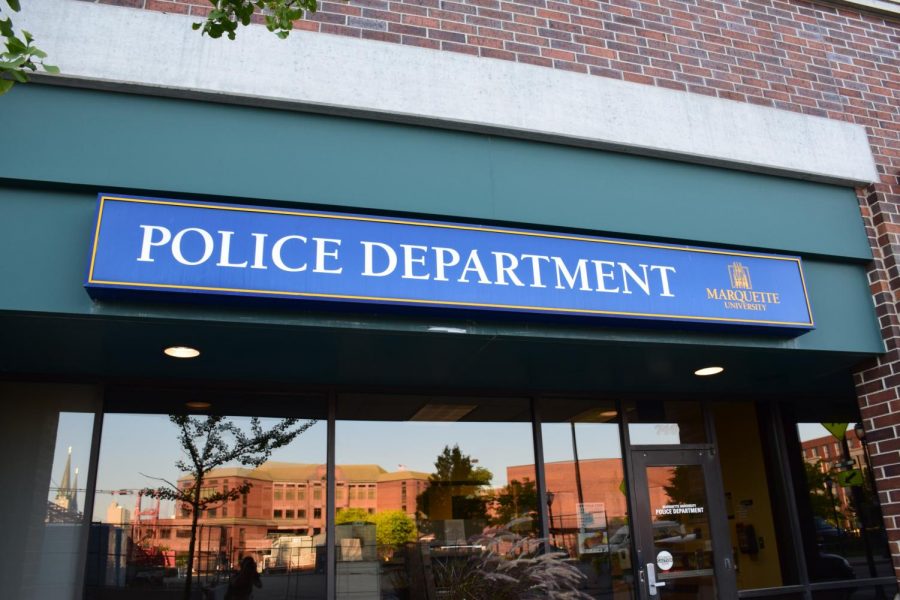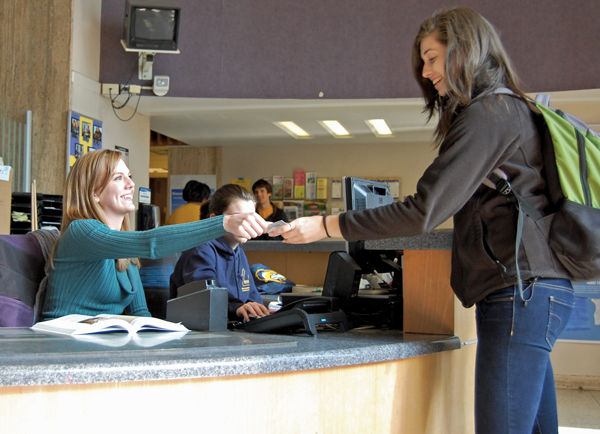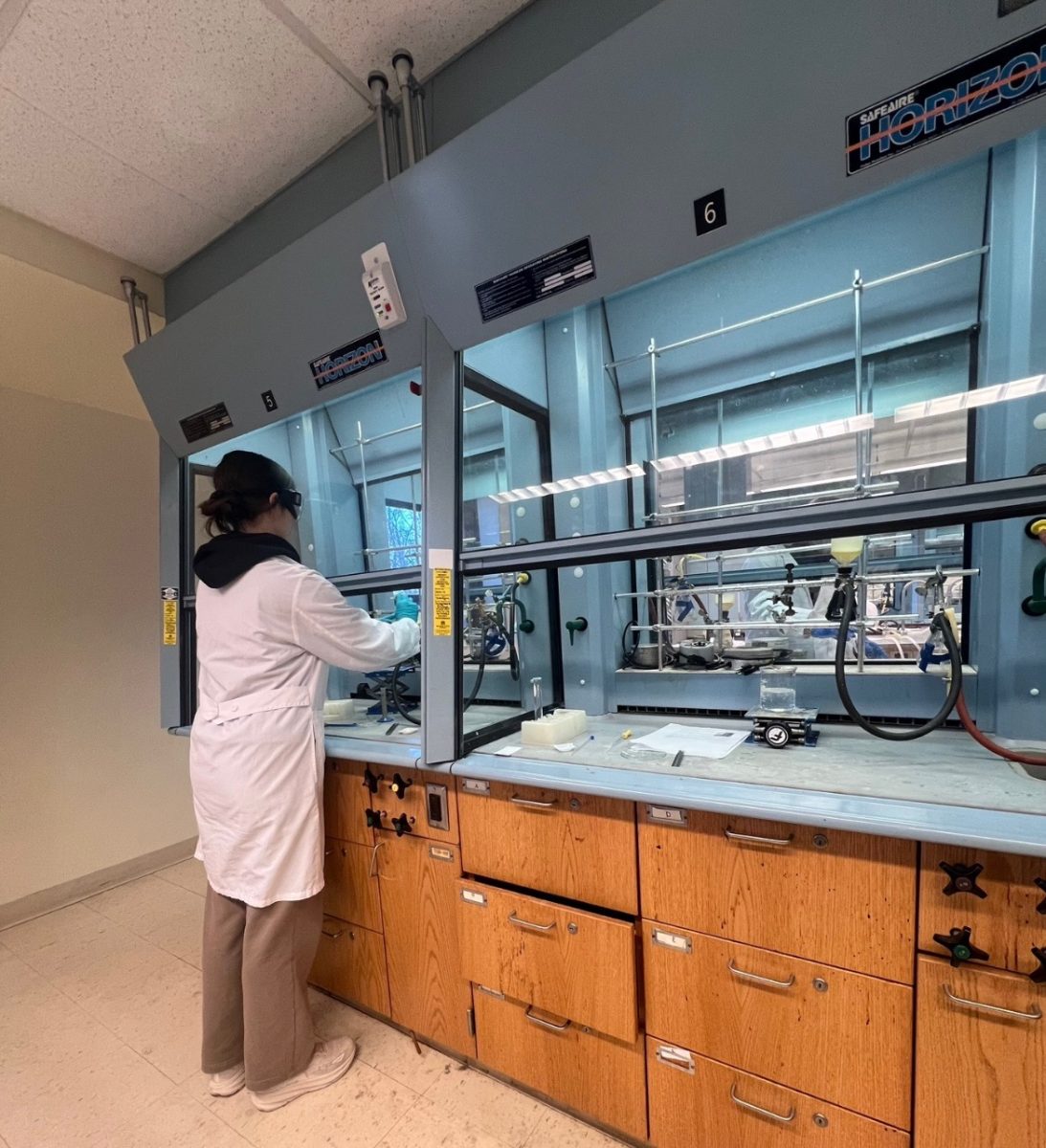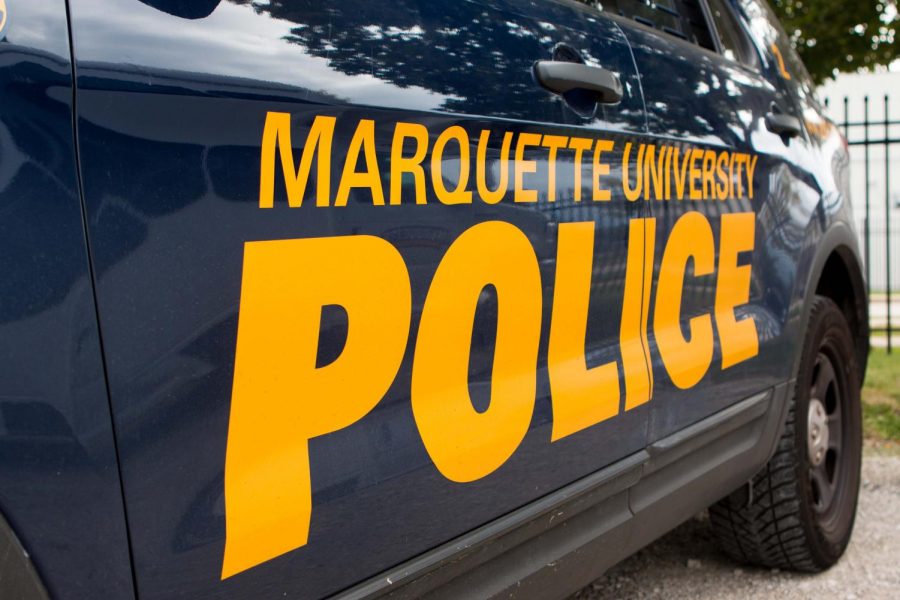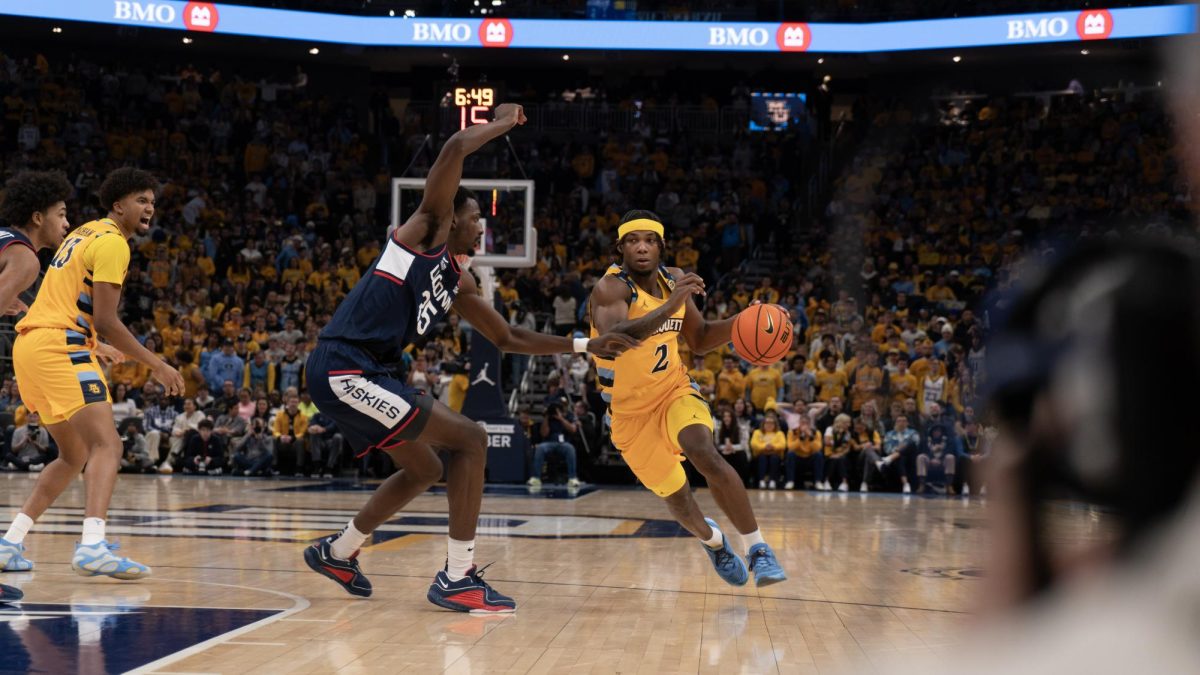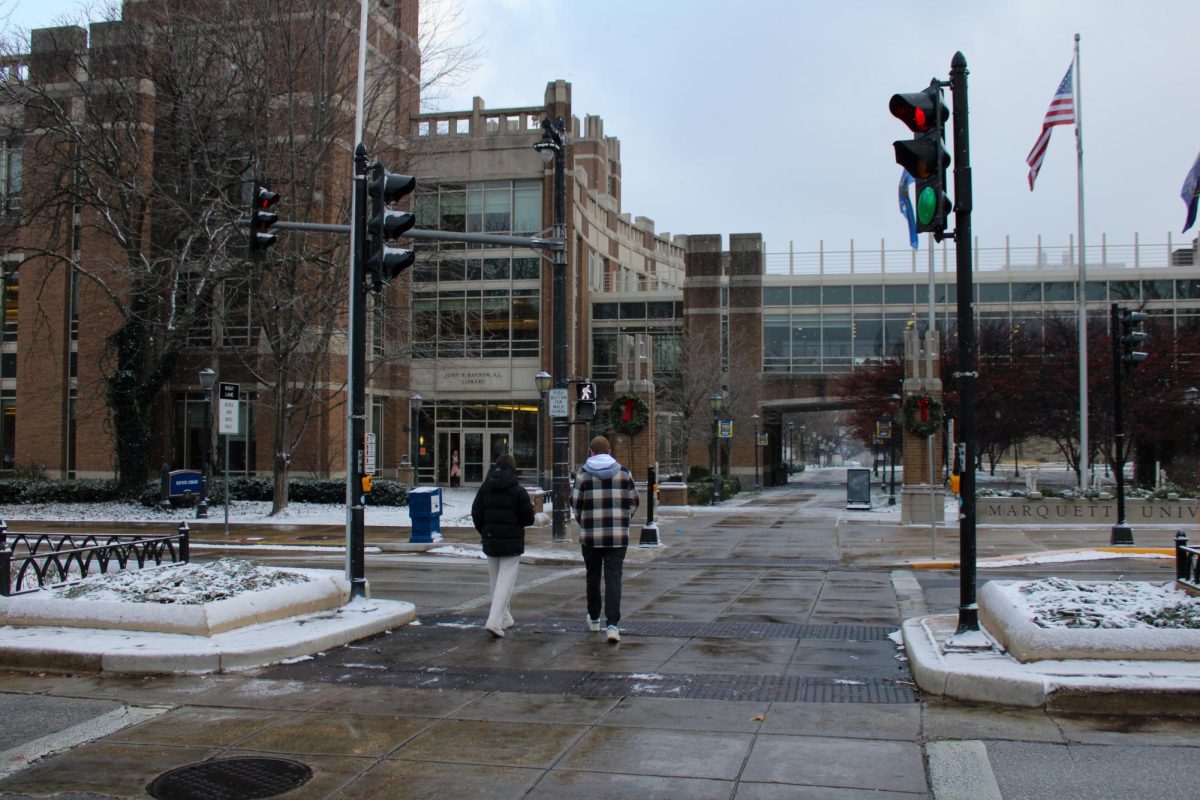It is a Wednesday night, you are walking back to your apartment carrying groceries. A suspicious vehicle drives up and parks 20 feet in front of you. A man with a hoodie quickly gets out of the passenger seat and starts walking in your direction.
The person approaches you on the sidewalk, and within a split second, he pins you between houses on a very dark street with a pistol thrust into your stomach. The difference between life and death is in that man’s fingertip pressed against the trigger of the pistol. At that very moment, your brain goes into a sudden state of fight or flight: “This can’t be happening to me; I’m going to die.”
A Marquette University College student was that person pinned against a house simply carrying groceries back to their apartment near 18th and Kilbourne Ave. For their safety, they asked to remain anonymous under the pseudonym John Doe. The Marquette Wire has decided to honor that request.
John Doe had a critical decision to make, do I fight and risk potentially killing myself? Or do I hand over my valuables? In those situations, the slightest mistake can mean death, and it is important to remain calm.
“I almost shut down and couldn’t function. At that moment, I thought back to my parents telling me as a child ‘don’t fight back, immediately hand over my belongings.’ I remember the second I felt the gun, I stumbled, dropping the bags, and reached into my pockets to hand him my stuff,” Doe said.
The man quickly took Doe’s phone and started asking him for passwords to his Apple ID and other accounts. One of the main apps that he wanted access to was Snapchat.
“It took me a while to give him my passwords because I was so in shock that I couldn’t remember them. What was even scarier was he wanted my Snapchat, and they started using the location settings. Anyone who had their Snapchat location public he texted and asked to meet up. Thankfully none of them agreed to do so.” Doe said.
While he was searching through his phone, there were times when Doe could have fought back. The individual holding him at gunpoint lowered his weapon several times. However, there were three other armed individuals in the car, and the perpetrator made sure to reiterate to John that “if you try to do anything, they will come after you.”
Looking back, Doe was glad that he handled the situation the way he did and knew that he did not have the proper training to disarm the individual.
Marquette Police Department (MUPD) instructs campus community members “if approached, give up your property” in campus safety email updates.
“I realized in that moment valuables can be replaced, but my life cannot be. Luckily, he let me go, and I ran straight to a neighboring house to call the Marquette police,” Doe said.
Marquette University Police Department arrived on the scene minutes later and were able to catch the perpetrator. Doe is impressed with the helpfulness of MUPD and the greater Marquette student community, he said.
“Not only did the Marquette police help me find the individual, but they gave me all sorts of resources, time off and counseling,” Doe said.
Doe utilized these resources which he said, “we’re definitely helpful in dealing with the situation.”
MUPD offers the following services for students who have been victims of recent crimes on campus such as the Counseling Center, the Healing Center, and Victim Advocate.
Despite MUPD’s prompt response to the situation, there are other non-escalatory measures that students believe could help prevent these incidents from happening in the future. One of them is lighting. Especially around the residential parts of campus, it is dark on the streets, which can make students feel unsafe.
“I wish there is more lighting, especially on streets near 18th and State where a majority of the incidents are happening. Also, I feel that there is a need for more Blue Light cameras in these areas where frequent incidents are taking place to dissuade crime,” said Doe.
Katie O’Leary, a junior at Marquette University, agreed. “Marquette could definitely do a better job of lighting certain areas that are very dark at night. Lights are a huge deterrent.”
According to a 2008 report done by the Department of Justice concluded that street lights do in fact reduce the amount of crime.
“It is clear that reductions in crime can be achieved by improvements in street lighting and that these reductions will be most worthwhile in high-crime neighborhoods…Improved lighting will also send a message to potential offenders that the neighborhood no longer offers easy opportunities for crime.”
However, there are times when students do have to walk alone late at night, and MUPD Police Chief Edith Hudson in a previous interview with the Marquette Wire, encourages students to download the Eagle Eye app, which will put you in touch with Marquette dispatch at the push of a button.
“The dispatch knows directly where you are and will respond accordingly,” Hudson said.
Ashley Anderson, a sophomore at Marquette University who was a recent victim of a drive-by airsoft shooting on Marquette’s campus, is happy in a previous interview with the Marquette Wire that there will be more MUPD officers hired under the Presidents task force. “I think it is really needed, especially with the recent incidents on campus. It’s every day that I feel like we see an alert, and now more than ever, it needs to be addressed.”
However, some students have raised concerns over a larger Police presence in the past.
While safety is a greater Milwaukee problem and more than just a Marquette University issue, Marquette has plans to implementing more safety measures to help keep students safe.
“We ask that students trust us, and trust that we have your best interest at heart in keeping you safe,” said Hudson.
This story was written by Max Pieper. He can be reached at maxwell.pieper@marquette.edu


